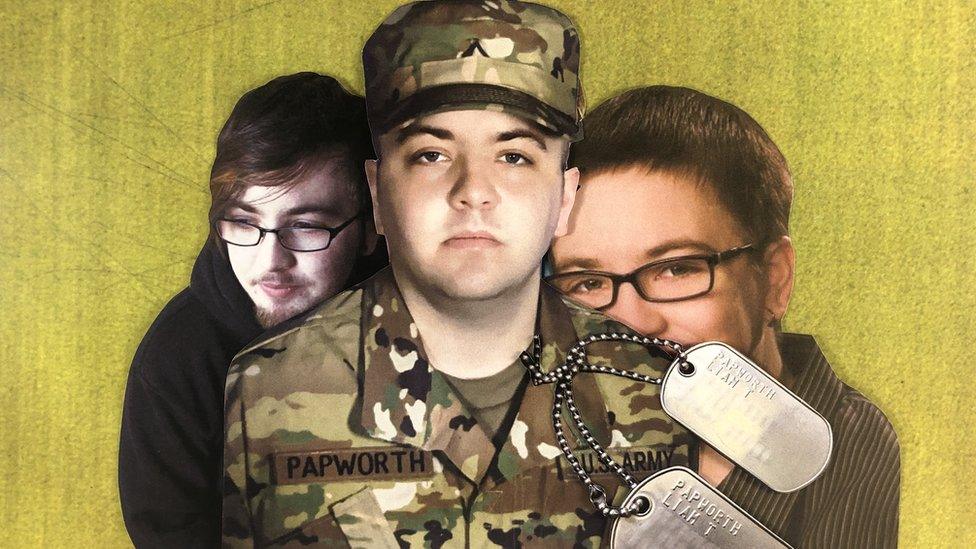Coronavirus: 'I’m scared of being buried as the wrong gender'
- Published
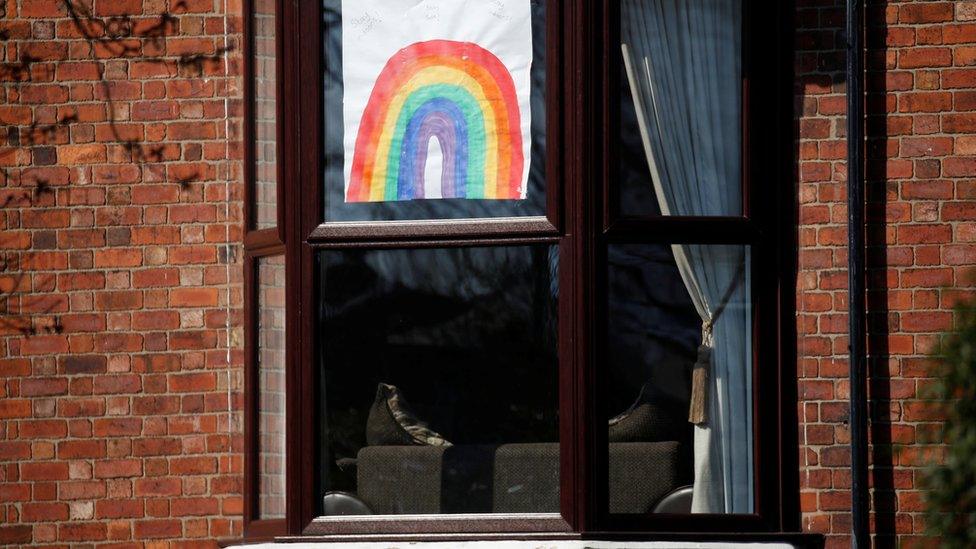
The rainbow - often the symbol of LGBT rights - has become used to thank the NHS and share a message of "hope" during lockdown
Even though lockdown measures have eased a little in England, the "stay alert" guidance is still affecting daily life. Seven weeks on, some LGBT people have told the BBC they are in more danger than ever before.
Lucy, 21, from the north-east of England is transgender and has severe heart issues. After years spent living as a woman, she says she has "no doubt" her parents would bury her as a man if she was to die from coronavirus.
"They'll shave my long hair, put me in a suit, use my birth name and call me 'he' all the way through the funeral. The thought of my family doing it makes me feel so sick, but I know they will.
Lucy, who works in a call centre, says her health issues are the only reason she hasn't moved out of her parents' house.
"When I came out as trans, and I told my parents I would stop living as a boy, they basically said 'no'. They literally tried to beat the trans out of me. My dad told me I needed to find a girlfriend and sort myself out."
She says she can't recall her family ever calling her 'Lucy', but they frequently use her male birth name "by mistake".
"They have never accepted me being trans. Why would they when I die?"
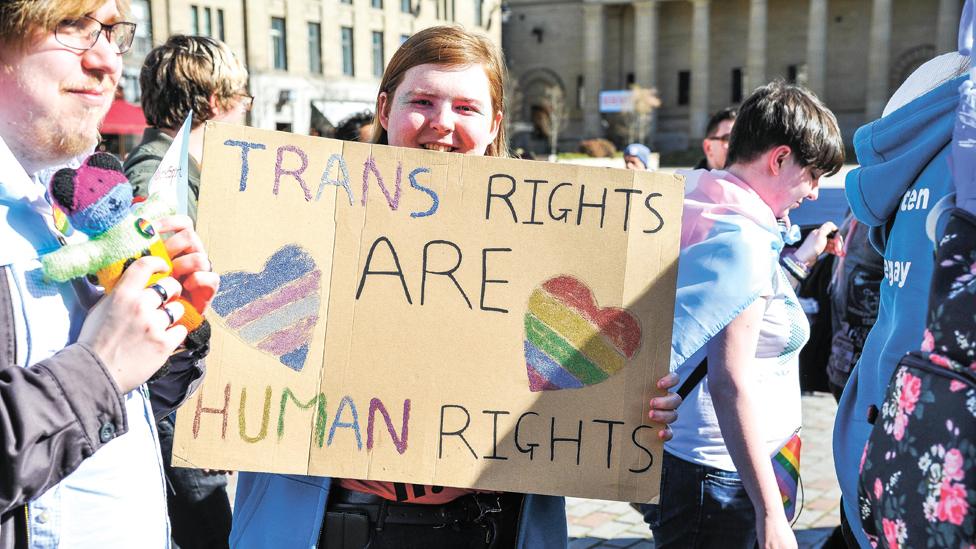
Sunday 17 May is International Day Against Homophobia, Transphobia and Biphobia
Lucy does not have a Gender Recognition Certificate (GRC),, external an official document which formally acknowledges someone's gender identity.
Krystyna Hebb, helpline manager at Mermaids, says not having a GRC leaves trans people vulnerable, however many find the process "too difficult" to go through.
"When living, a trans person can go by any name or gender. But after dying, if they have no legal documents, their family can take over. If their family aren't supportive of their identity, that can lead to problems."
A former pastor and Christian family support worker, Krystyna says "I actually refused to do a funeral in the church because of this. It is an awful thing to see, but the law is very clear."
Increase in helpline calls
Lucy Bowyer from LGBT homelessness charity, akt, says they're experiencing "a spike" in service use.
"We've seen more young people who are street homeless than we would normally in this period.
"The longer our young people are locked down, the more difficult their situations become. Many say they're going 'back into the closet'."
The Outside Project says their shelter had to operate around the clock because "other homelessness services have closed."
"Councils across the UK do not treat LGBT family rejection as domestic abuse and that stops vulnerable people getting emergency housing," Director Carla Ecola says.

EXERCISE: What are the guidelines on getting out?
LOOK-UP TOOL: How many cases in your area?
RECOVERY: How long does it take to get better?

Matt, 24, could be classed as one of those people.
Until last week Matt was living in the West Midlands alongside parents with a history of mental and physical abuse. After one incident, Matt was left with concussion.
"My dad was drunk one day and he said to me 'I won't ever accept you being gay and you will never bring someone home.' When I asked why, he told me, 'because it's not normal'."
During lockdown, Matt's family made fake social media accounts, to learn more about Matt's sexuality and identity. Matt was called "a disgrace" and asked to leave home.
"They called the police to remove me. I told them I'd rather be locked in a cell than with my parents."
Since being kicked out, Matt has been "sofa surfing" with friends and struggled to get support from LGBT charities during the pandemic.
"It seemed like all of these homeless resources haven't actually been able to help me at all.
"I've used up my savings, but luckily I've had people who can have me for a few days reach out from all over. If I didn't have my friends, I would be on the street."
Sunday 17 May is International Day Against Homophobia, Transphobia and Biphobia, which aims to raise awareness of LGBT rights violations.
Phyll Opoku-Gyimah, executive director of Kaleidoscope Trust, says: "Across the world we're hearing from LGBT people who are being criminalised and penalised for being themselves, at a time when small organisations supporting them are struggling to continue.
"We need an international approach. Governments need to ensure the coronavirus response and recovery efforts are inclusive of LGBT people and their needs."
Follow Ben Hunte on Twitter, external and Instagram, external.
- Published26 March 2020
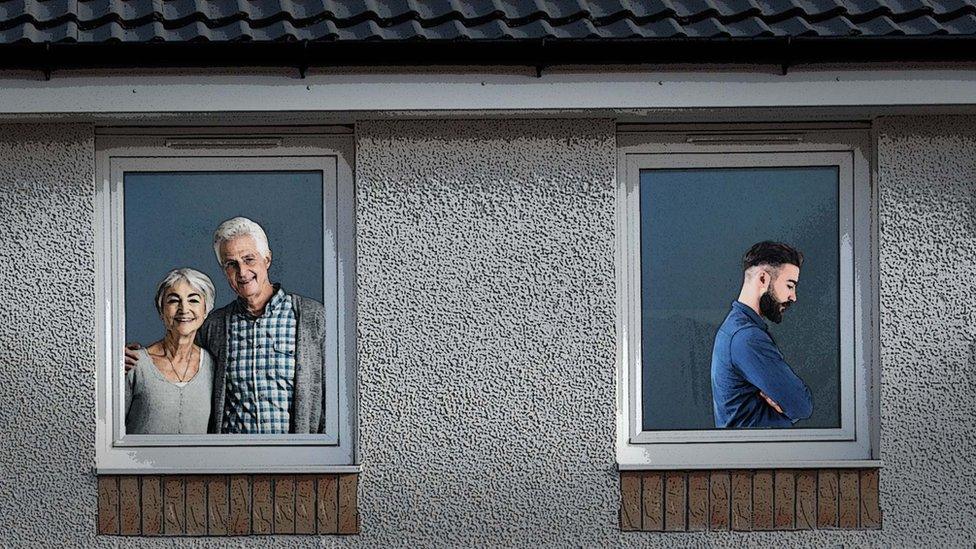
- Published23 March 2020
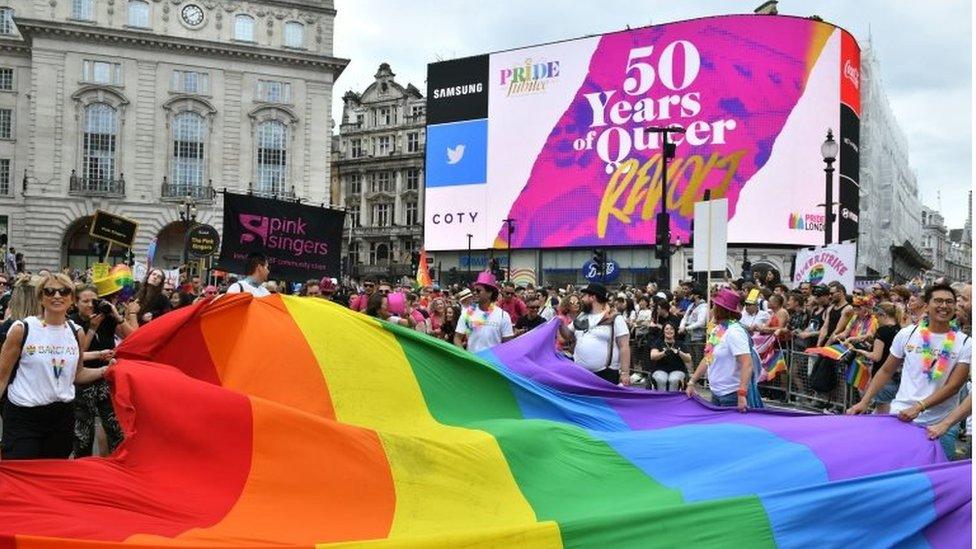
- Published29 April 2020
